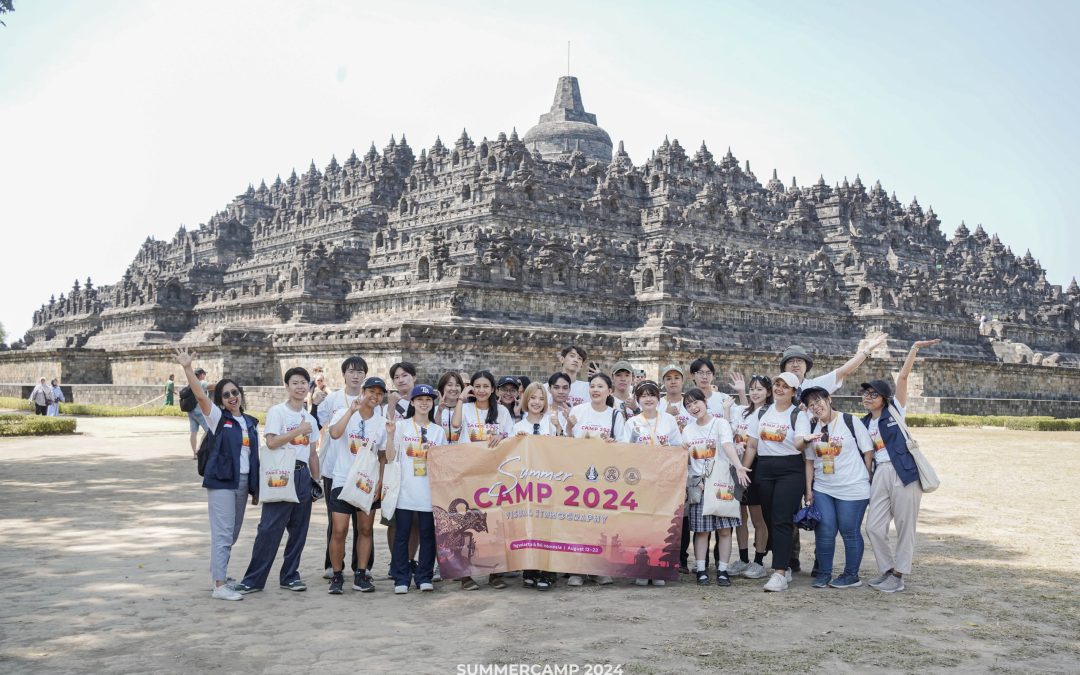



Yogyakarta, Indonesia — To provide students with an enriching international experience, Universitas Kristen Duta Wacana (UKDW) Yogyakarta, in collaboration with Universitas Dhyana Pura (UNDHIRA) Bali, has launched the Visual Ethnography Summer Camp. The program, running from July 31 to September 6, 2024, brings together 19 participants from Indonesia, Japan, and China.
Dr. phil. Lucia Dwi Krisnawati, Head of the Office of Partnerships and Public Relations at UKDW, stated that the program is designed to foster cross-cultural collaboration, creativity in documenting ways of life, and problem-solving skills in remote communication. Additionally, it aims to enhance participants’ English proficiency.
“This program utilizes a blended learning approach,” Krisnawati explained. “Participants engage in asynchronous video lessons, focus group discussions, and group presentations online, while in-person sessions involve direct observation of Javanese and Balinese cultures. The participants are grouped and tasked with projects covering topics such as local-based urban farming, community-based tourism, religious life, traditional markets, and natural conservation rooted in local wisdom.”
She added that these topics allow students to observe and share insights on different ways of life, applying visual ethnography to modern contexts. With guidance from supervising lecturers, the groups are free to select their project topics. Participants can earn 2-3 academic credits for the program.
During their time in Yogyakarta, participants visited several key sites, including Kampung Sayur Bausasran for discussions on urban farming, HKTY Ganjuran Church to study religious and cultural inculturation, and participated in activities at Purbayan Kotagede Tourism Village, Borobudur Temple, and Prambanan Temple. They also learned to play traditional instruments like the gamelan and angklung at the UKDW Seturan Dormitory.
Kiminori Fukuda, a supervisor from Kansai University, Japan, expressed his gratitude to the organizers for the well-prepared program and for inviting Kansai University to participate. “This is our third year participating in the Visual Ethnography Summer Camp. Each year, I see the quality of the program improve. The participants are more engaged and enthusiastic,” he remarked. [mpk/trans.drr]
